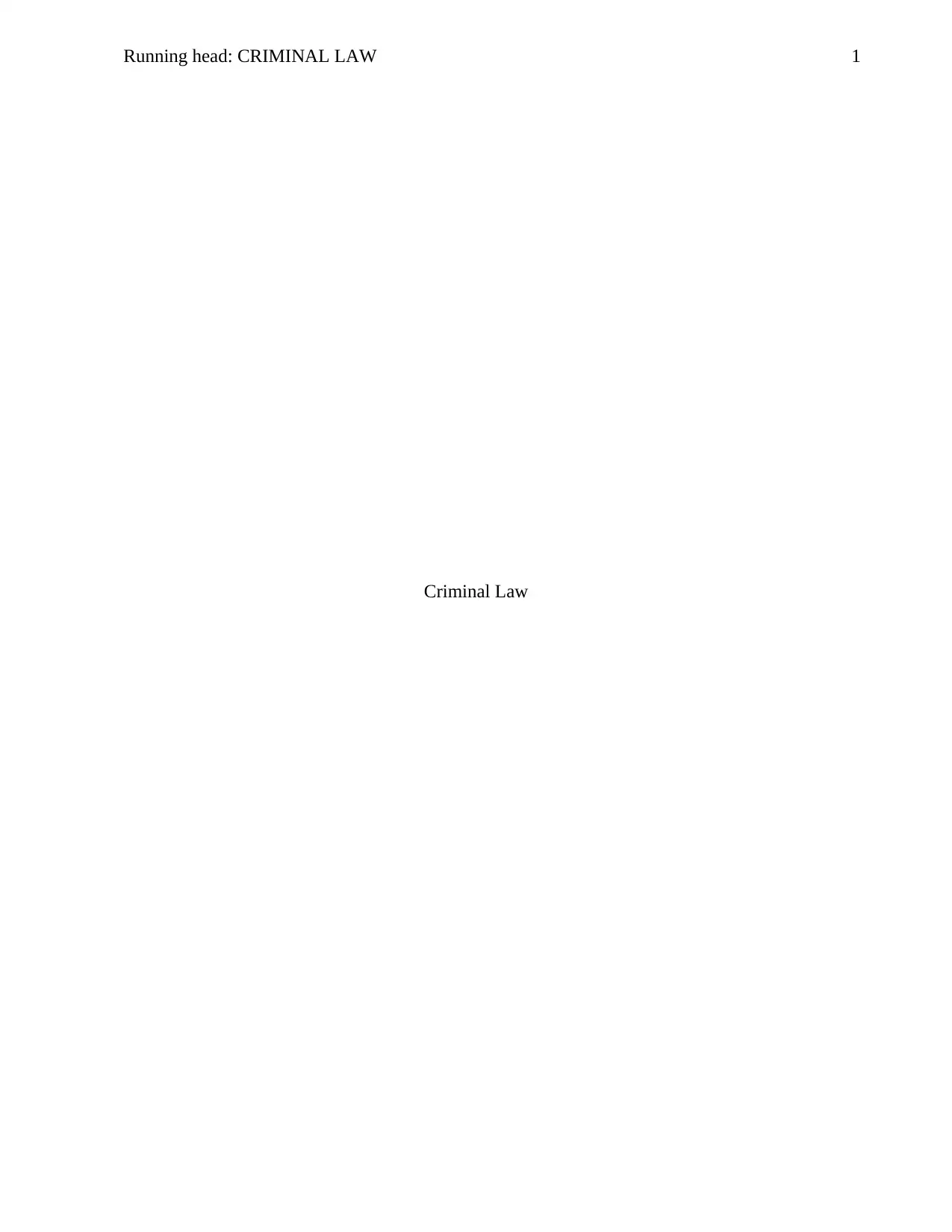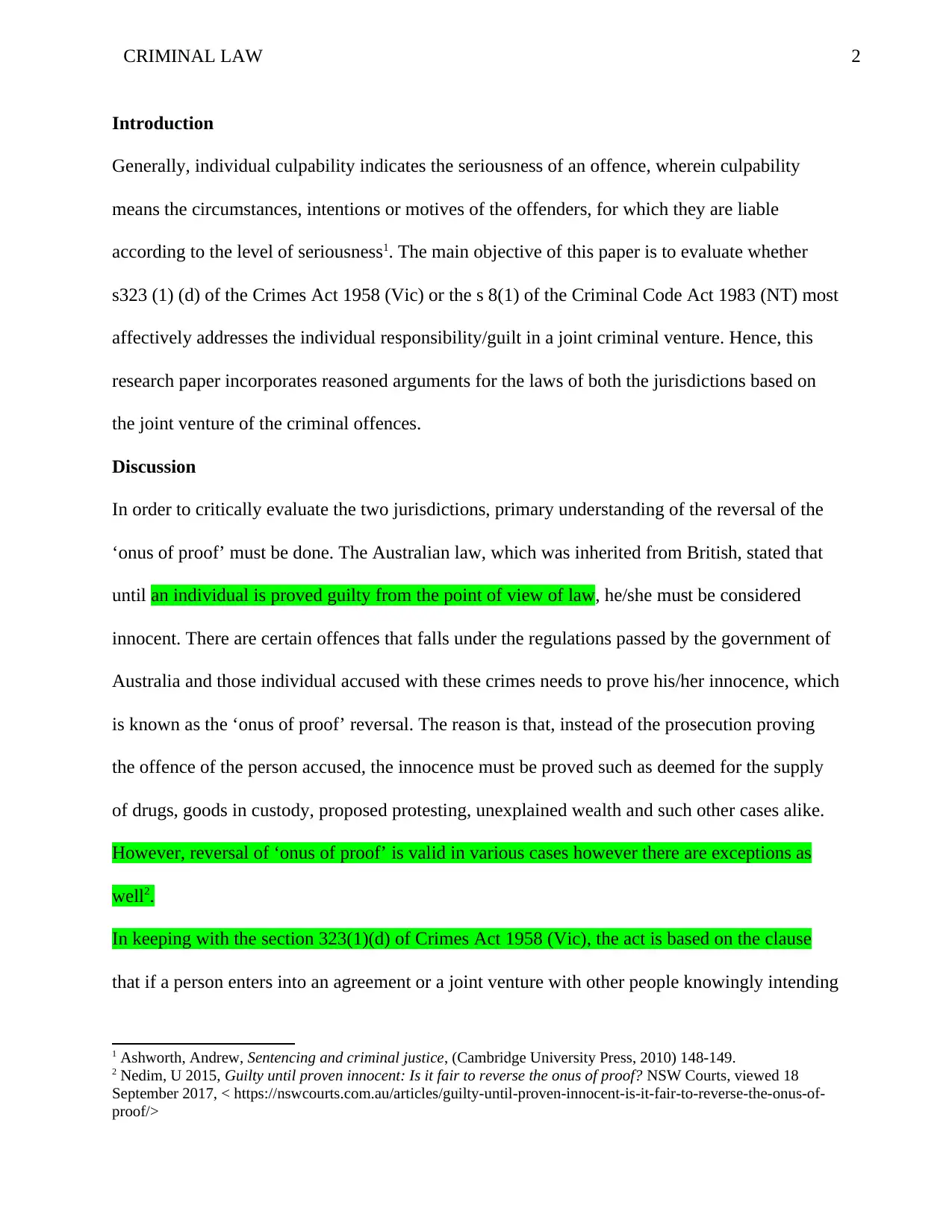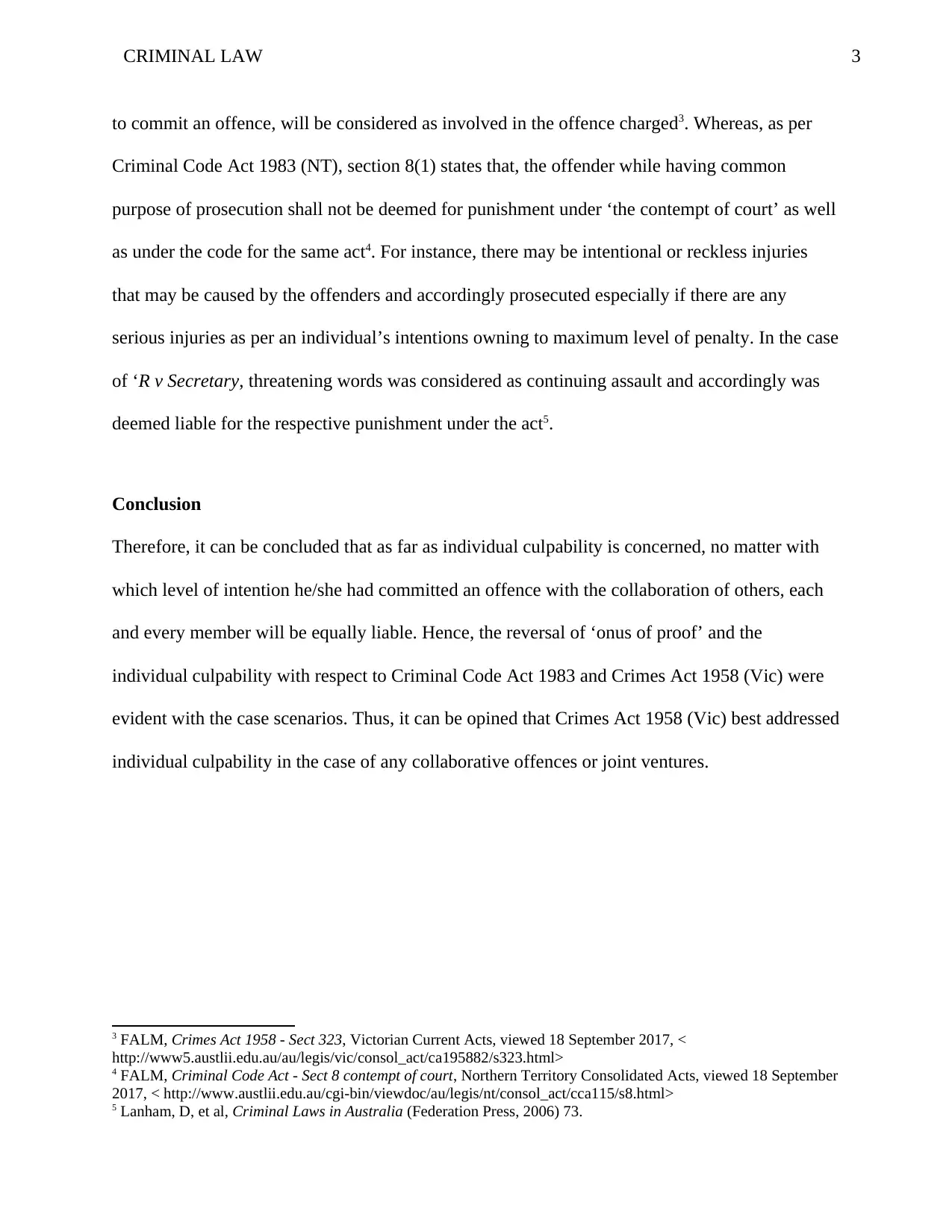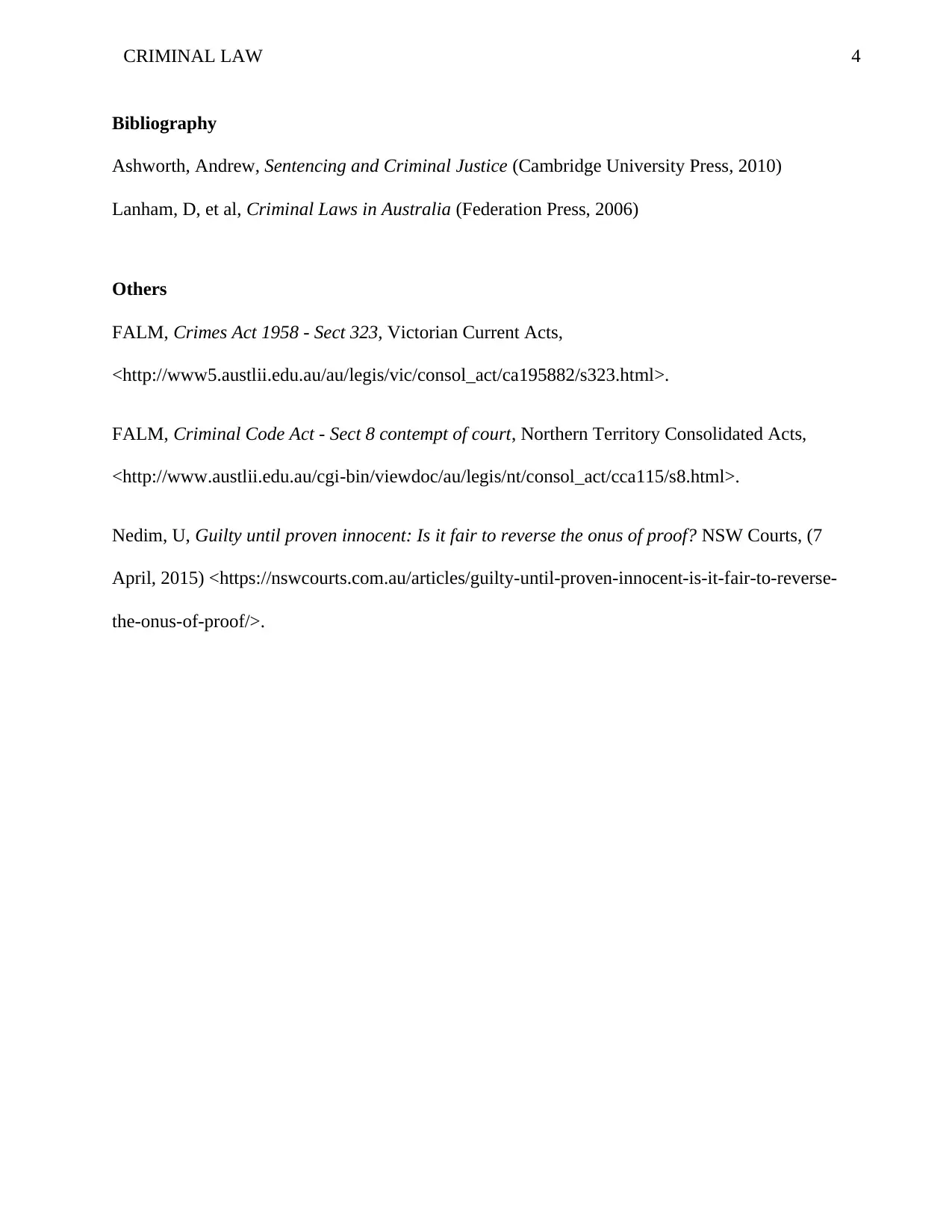Criminal Law: Comparing Individual Culpability in Joint Ventures
VerifiedAdded on 2020/04/01
|4
|866
|223
Essay
AI Summary
This essay critically examines individual culpability in joint criminal ventures, focusing on the Crimes Act 1958 (Vic) and the Criminal Code Act 1983 (NT). The paper begins by defining individual culpability and its significance in determining the seriousness of an offense. It then delves into the concept of the 'onus of proof' in Australian law, highlighting its reversal in certain cases. The essay compares the two jurisdictions, analyzing how they address individual responsibility in collaborative criminal activities. The analysis includes a discussion of relevant legal provisions and case scenarios, such as R v Secretary, to illustrate the application of these laws. The conclusion asserts that, concerning individual culpability in collaborative offenses or joint ventures, the Crimes Act 1958 (Vic) is better at addressing this. The essay is supported by citations from legal texts and relevant legislation.
1 out of 4











![[object Object]](/_next/static/media/star-bottom.7253800d.svg)